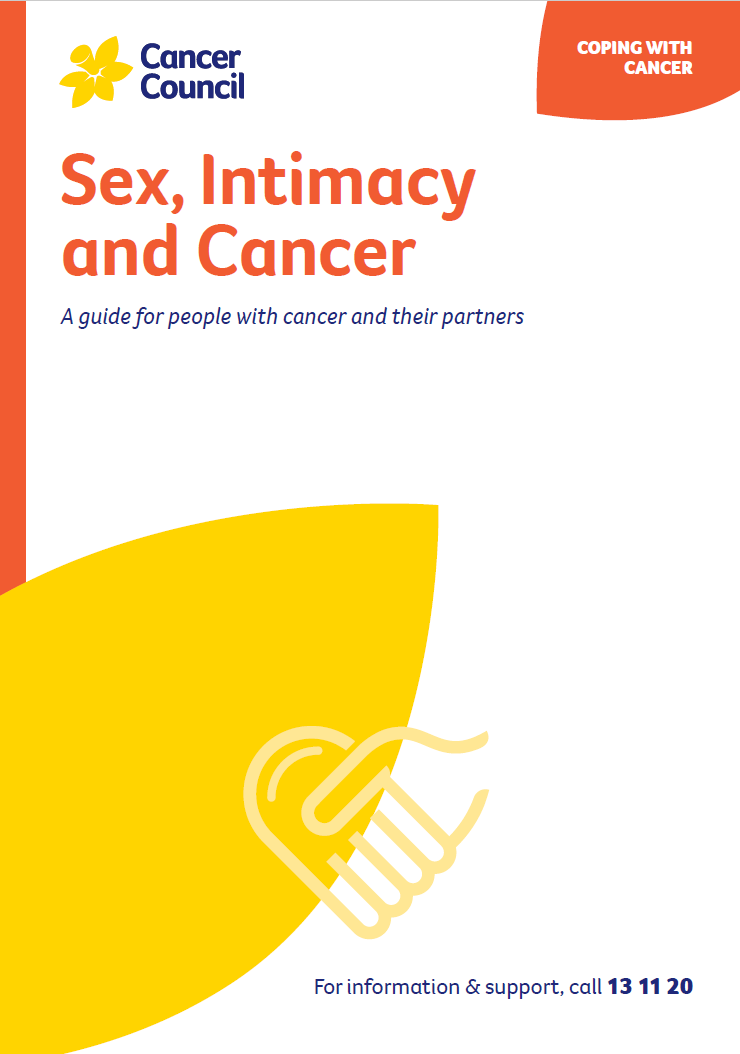- Home
- About Cancer
- Managing side effects
- Sex, intimacy and cancer
- Sex and intimacy explained
Sex and intimacy explained
Learn about the role that sexuality plays in your life, and how sexual orientation, sex and intimacy might impact different people’s lives.
How you express yourself sexually is shaped by many things, including:
- your relationships and whether you have a partner
- physical and mental health
- culture, values and beliefs
- opportunities and interests
- caring responsibilities
- how you feel about yourself (your self-esteem).
Sexual expression
This is about who you are, how you see yourself, and how you communicate your desires. You can show this in many ways, including by the clothes you wear, the way you move, how you have sex, and who you have sex with. Your role in a sexual relationship may also affect your sexual expression.
Sexual orientation
This describes the attraction you feel towards another person. Some examples include heterosexual (straight), homosexual (gay or lesbian) and bisexual (attracted to men and women). Some people’s sexual orientation is fluid, and may change.
Sex and sexual activity
Sex is more than intercourse or penetration. It also includes touching, kissing, masturbation and oral sex.
Intimacy
Feeling close and connected to someone can be physical or emotional. Intimacy can mean sharing feelings of love and care. It can also mean feeling valued, safe and trusting someone. You may share your thoughts and feelings, a special place, or a meaningful experience.
Sex is one way to show intimacy, but intimacy is not only about sex. Intimate touch like kissing, cuddling or holding hands is often still important, even for people who don’t want other types of sexual activity.
Cancer can affect your relationship with partners, family, friends and colleagues. Many people say cancer treatment also changes their sex life and intimacy. These changes may last for a short time, a long time, or be permanent. For some people, this is one of the hardest parts of life during or after cancer.
Although some people with cancer say that sex is the last thing on their mind, others still want the closeness and comfort that intimacy can bring. Cancer and the stress of everyday life may mean sex and intimacy are not a priority, but this can change with time.
Sex after cancer may be different. Treatment, getting older or other medical conditions may mean accepting that you’ll never have your previous sexual ability. But you can still find ways to have a fulfilling sex life, that is “good enough”. You may need to try new ways to connect – both physically and emotionally. Taking time to focus on intimacy may help strengthen your relationship.
→ READ MORE: How cancer treatment can affect your sex life
Podcast: Sex and Cancer
Listen to more of our podcast for people affected by cancer
More resources
Dr Michael Lowy, Sexual Health Physician, Sydney Men’s Health, NSW; Gregory Bock, Clinical Nurse Consultant – Oncology Coordinator, Urology Cancer Nurse Coordination Service, Cancer Network WA; Anita Brown-Major, Occupational Therapist and Director, Thrive Rehab, VIC; Helena Green, Psychosexual Therapist and Clinical Sexologist, Insync for Life Psychology and Women Centre, WA; Dr Lisa Mackenzie, Clinical Psychologist, HNE Centre for Gynaecological Cancer, Hunter New England Local Health District, NSW; Dr Tonia Mezzini, Sexual Health Physician, East Obstetrics and Gynaecology, SA; Sophie Otto, Prostate Cancer Nurse Consultant – Central Adelaide Local Health Network (CALHN), SA; Giovanna Raco, 13 11 20 Consultant, Cancer Council Victoria; Kath Schubach, Urology Nurse Practitioner, VIC; Emily Stevens, Gynaecology Oncology Clinical Nurse Consultant, Southern Adelaide Local Health Network, Flinders Medical Centre, SA; Anja Vukovic, Clinical Specialist Social Worker, Gynaecological Oncology, Westmead Hospital, NSW; Alan White, Consumer; Kathleen Wilkins, Consumer; Merran Williams, Consumer.
View the Cancer Council NSW editorial policy.
View all publications or call 13 11 20 for free printed copies.

